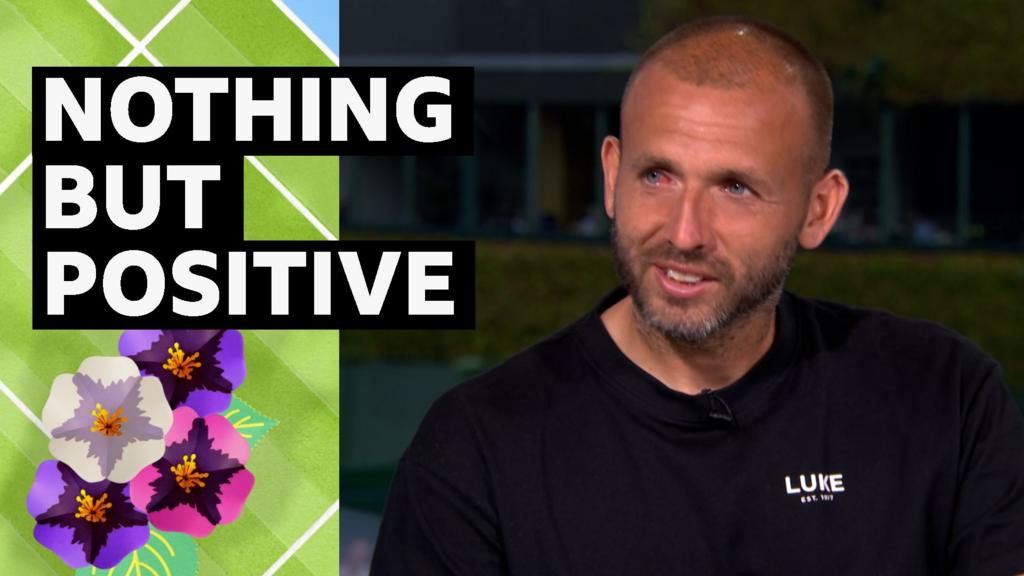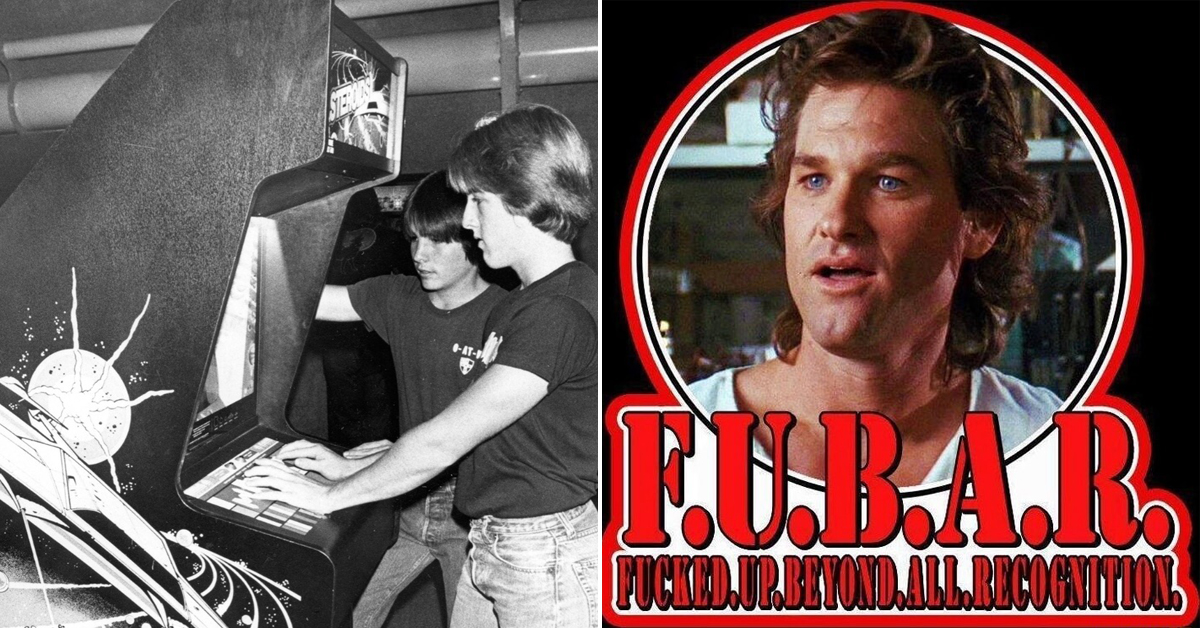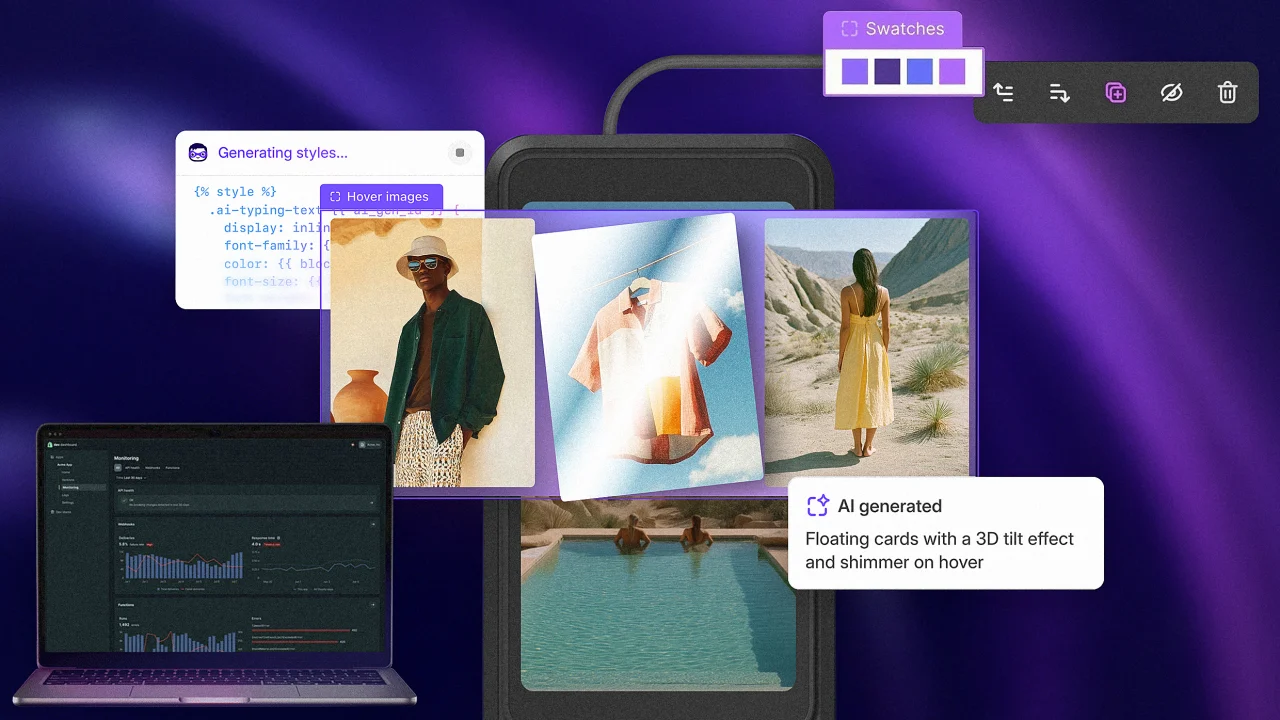This ‘Elden Ring’ book costs nearly $300. Fans say it’s worth it
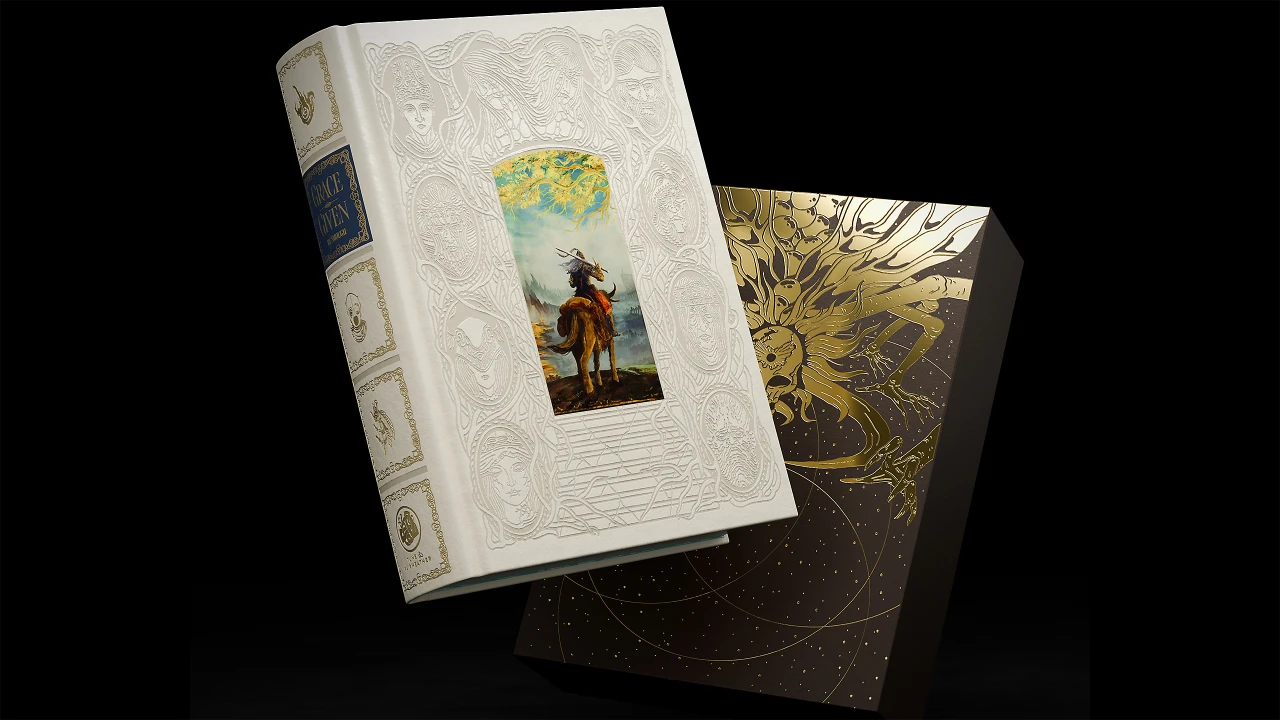
The $297 collector’s edition of Grace Given has shimmering gilded edges, a simulated white antique leather cover, lush full-color illustrations on heavy coated stock, and a flocked slipcase with extensive gold-foil detailing.
Such elaborate, ornate bookmaking is the purview of a handful of passionate and obsessive publishers—most notably among them The Folio Society. But whereas The Folio Society is known for its luxe editions of classic and contemporary works, Grace Given is, against all odds, about a video game.
Of course, it’s not just about any video game: it’s about the mythology of Elden Ring, FromSoftware’s 2022 Game of the Year winner. The game just crossed the $30 million mark in sales, putting it in the company of Call of Duty titles, Super Mario Odyssey, and Diablo III.
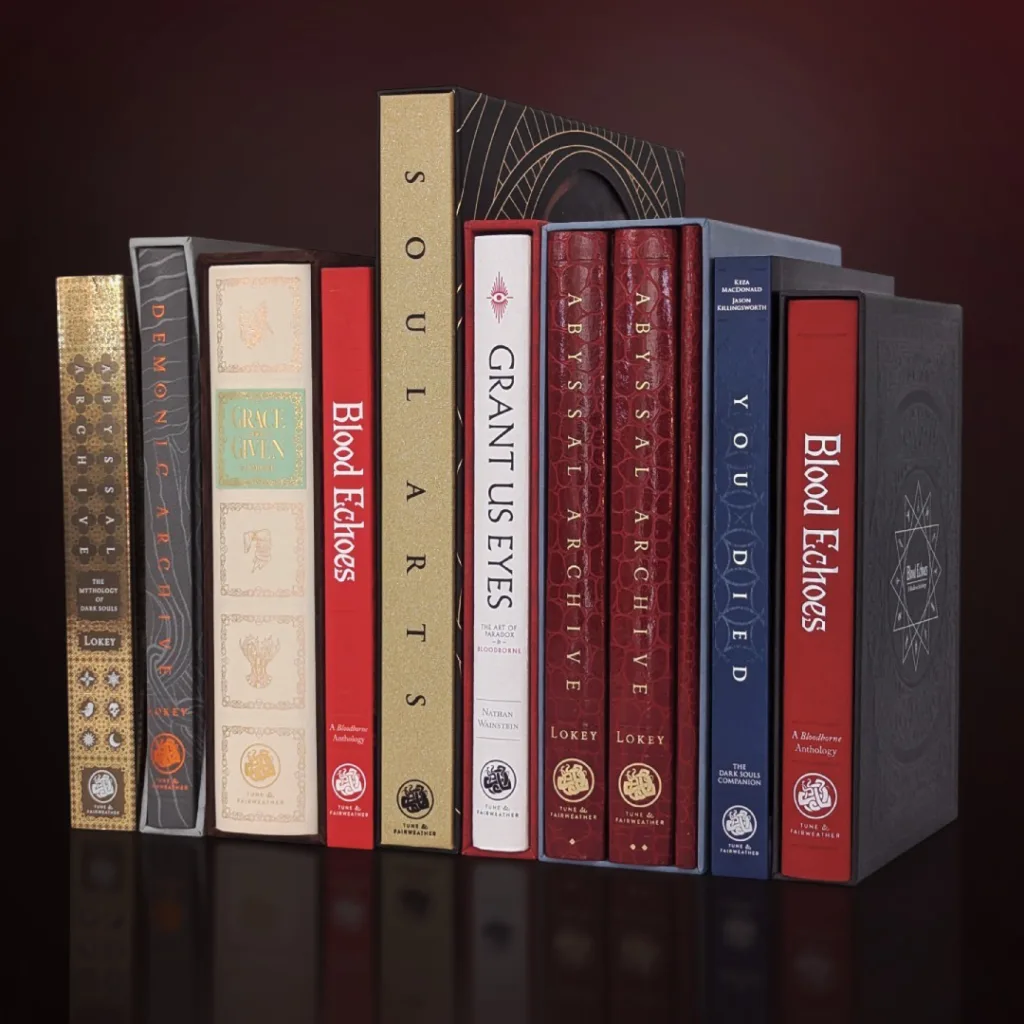
Video game books tend to be flimsy, mass-produced affairs. But publisher Jason Killingsworth believes in the staying power of FromSoftware’s cult-fave games, which launched the “Soulsborne” genre with titles like Demon’s Souls, Bloodborne and the Dark Souls series. So the Dublin-based creative launched a publishing company, Tune & Fairweather, that celebrates their rich worlds—and the obsessive fan bases they command. Five years in, he says the enterprise has crossed the €10 million ($11.7 million USD) mark, and made around €3.5 million ($4.1 million USD) last year alone. In the process, Tune & Fairweather’s books are perhaps doing something else via their elaborate form factors: elevating the art form of video games at large. And the runaway success of Elden Ring gave them an opportunity to take it all to an unprecedented level, creating perhaps the most opulent video game book ever made.
“You’re hoping for that project that’s just going to let you throw everything you’ve ever learned [at something], use every tool in the toolbelt—and Grace Given just seemed like the perfect project to take that kitchen-sink approach,” Killingsworth says.
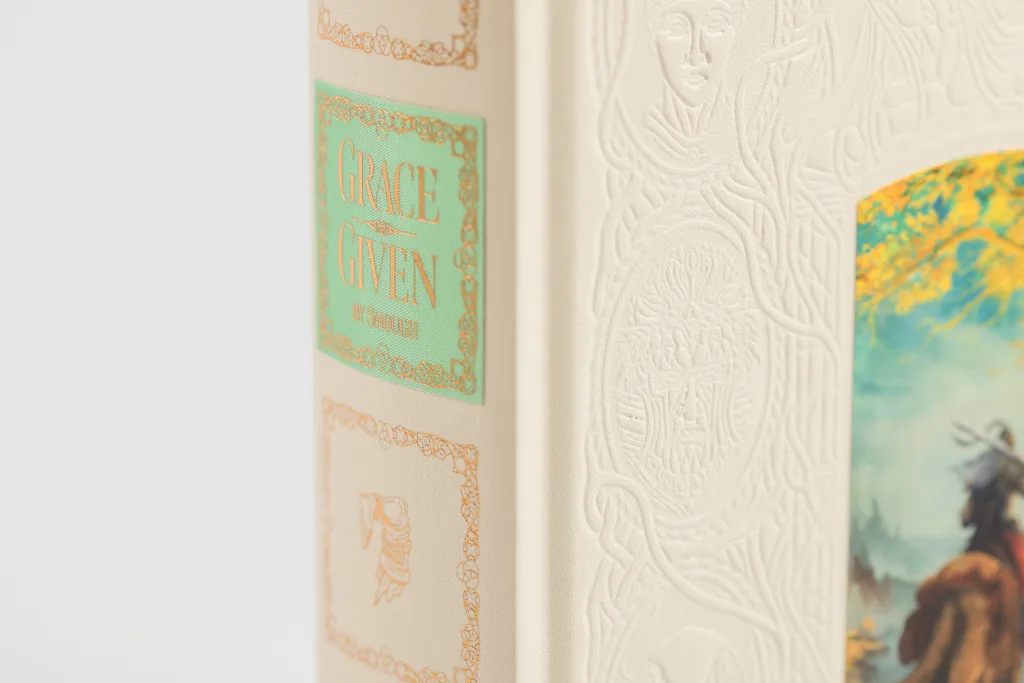
LEVELING UP
Killingsworth was born in Ireland to Christian missionaries, but found himself drawn to the demons of scripture over the angels; he just saw them as more textured and interesting. He also loved role-playing video games, so after working as an editor at Paste in its heyday (where he launched its video game coverage), he got a gig at the U.K.-based game magazine Edge, where he discovered Demon’s Souls. He was entranced by FromSoftware’s strange immersive worlds where every detail felt considered and intentional, and went further down the rabbit hole—eventually writing a book about Dark Souls in 2016 with video game journalist Keza MacDonald, dubbed You Died. Named after the screen that pops up in the notoriously difficult Soulsborne titles when you, well, die (a lot), the book explored the game from a variety of angles, from its creation to the psychology behind its popularity to its fandom (which includes director Alex Garland).
The thing was, the book was released by a small publisher, “and I had been cajoling and sort of begging them to do this really exalted fetish object of a book that I knew that Souls fans would revel in—and it just wasn’t what they wanted to make,” Killingsworth says.
So they released the book at a low price (and the production specs to match), and that was that. Until it wasn’t, when Killingsworth bought the hardcover rights to the project.
“There was this unfinished quest line with You Died, where there was an ideal version of that book in my mind that hadn’t been created, and it was still sitting in there like a little splinter,” he says.
He formally launched Tune & Fairweather in 2019 when he announced a Kickstarter campaign for an updated, expanded, and, most importantly, richly produced volume, from the art to the paper stock and the hardcover bindings (one tier even involved an etched pine “coffin” box for the book at $347).

Because of their high level of difficulty, FromSoftware games can be a punishing experience for casual gamers who are not expecting to die dozens upon dozens of times before learning the right moves to conquer a given foe. As such, they are polarizing—and they yield either enraged naysayers, or rabid obsessives. Would the latter be willing to support the ultimate book tie-in, not to mention the price it would command?
“I had a really strong, strong hunch,” Killingsworth says. Gaming is, after all, a largely intangible experience—and when you have a physical object that deepens that experience, not unlike music fandom and a vinyl record box set, you might have exactly what a devoted fan would want. And Killingsworth would know. It’s what he wanted. “I just knew that video game fans were some of the most collector-minded audiences on the planet,” he says.
Moreover, with Kickstarter, there really was no risk in probing the concept (save embarrassment, he notes with a laugh). It went on to provide compelling proof of concept when it made €126,346 on a €50,000 goal. But the true watershed moment came when Tune & Fairweather Kickstarted Soul Arts in 2021, a book featuring a range of work from YouTuber Michael “VaatiVidya” Samuels’ Soulsborne fan art competitions. It was funded in one hour, and made $2.15 million on a $58,880 goal.
At the time, Killingsworth had been laid off from Riot Games, where he had been working, and was coasting on (the last of) his severance. The Kickstarter came at a critical moment: “It really was those first minutes of the Soul Arts campaign where I had the realization that I was going to be able to do Tune & Fairweather full-time,” he says.
(Curious about the IP legalities of all this? Killingsworth notes that FromSoftware doesn’t interfere, and similar to fans who make YouTube videos about the company’s games, Tune & Fairweather is essentially doing the same thing in print, providing original analysis and art.)
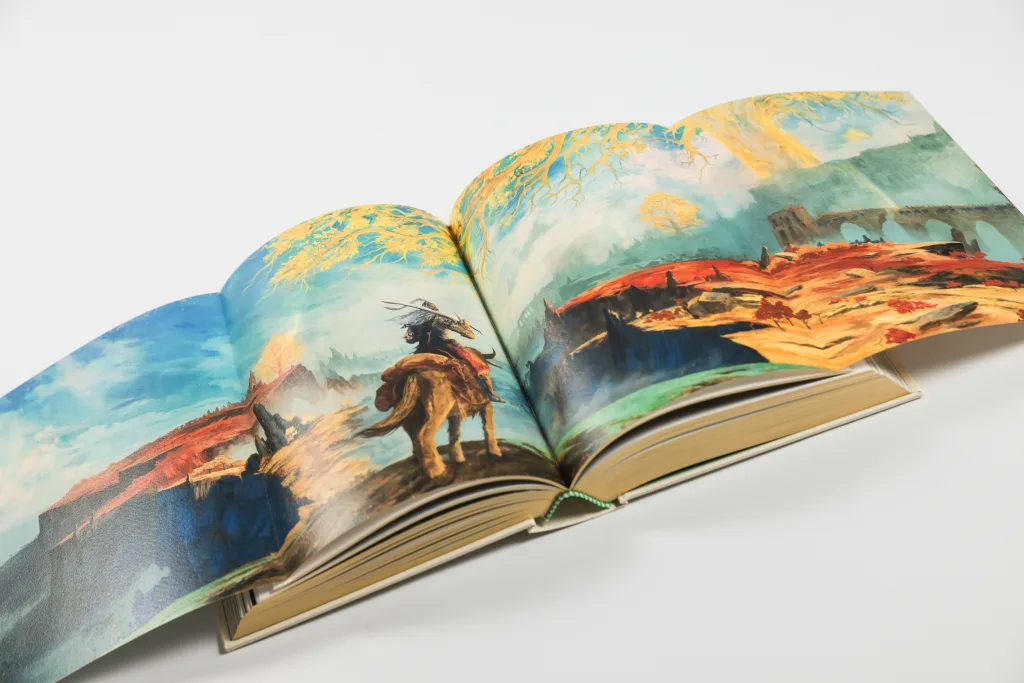
A DESIGN FREE-FOR-ALL
The publisher has since scaled up to making three to four books a year, and moved from Kickstarter to an internal sales system. It’s worth noting that not all of its output is Soulsborne books. While those remain Tune & Fairweather’s bread and butter, they allow Killingsworth the space to explore other projects, like this year’s typographic/visual novel Process.
Its most ambitious book so far is Grace Given: The Mythology of Elden Ring. When it came to the production, Killingsworth drew inspiration from a few critical places—notably Italy, where all of Tune & Fairweather’s books are printed. When he ventures over for each production run, he tacks on a few days for exploration—and that can be immediately seen on the cover, which was designed by Elliott Wells (whose double gatefold also dominates the middle of the book). The debossed demigod faces that frame the cover echo, say, the carvings in the Golden Staircase of the Doge’s Palace in Venice. The weathered marble throughout Italy finds its way into the faux antique white leather, and the gilded edges are synonymous with so much ornamentation in the country.
Another key influence is the Chester Beatty Library in Dublin, and its permanent Arts of the Book exhibit featuring elaborate tomes of the ancient world, where Killingsworth often finds inspiration, as in the case of the overall color palette or the fabric spine labels that made their way to Grace Given.
Ultimately, “We used almost every design technique that you could think of,” Killingsworth says. “It was just an absolute free-for-all. It was so fun and so indulgent.”
The book showcases more than 20 illustrations by the popular artist Shimhaq and more than 100 spot illustrations by MenasLG—both regarded for their takes on the genre. The core text detailing Elden Ring’s mythology, meanwhile, comes from Geoff “SmoughTown” Truscott, who maintains a popular YouTube channel where he explores game lore.
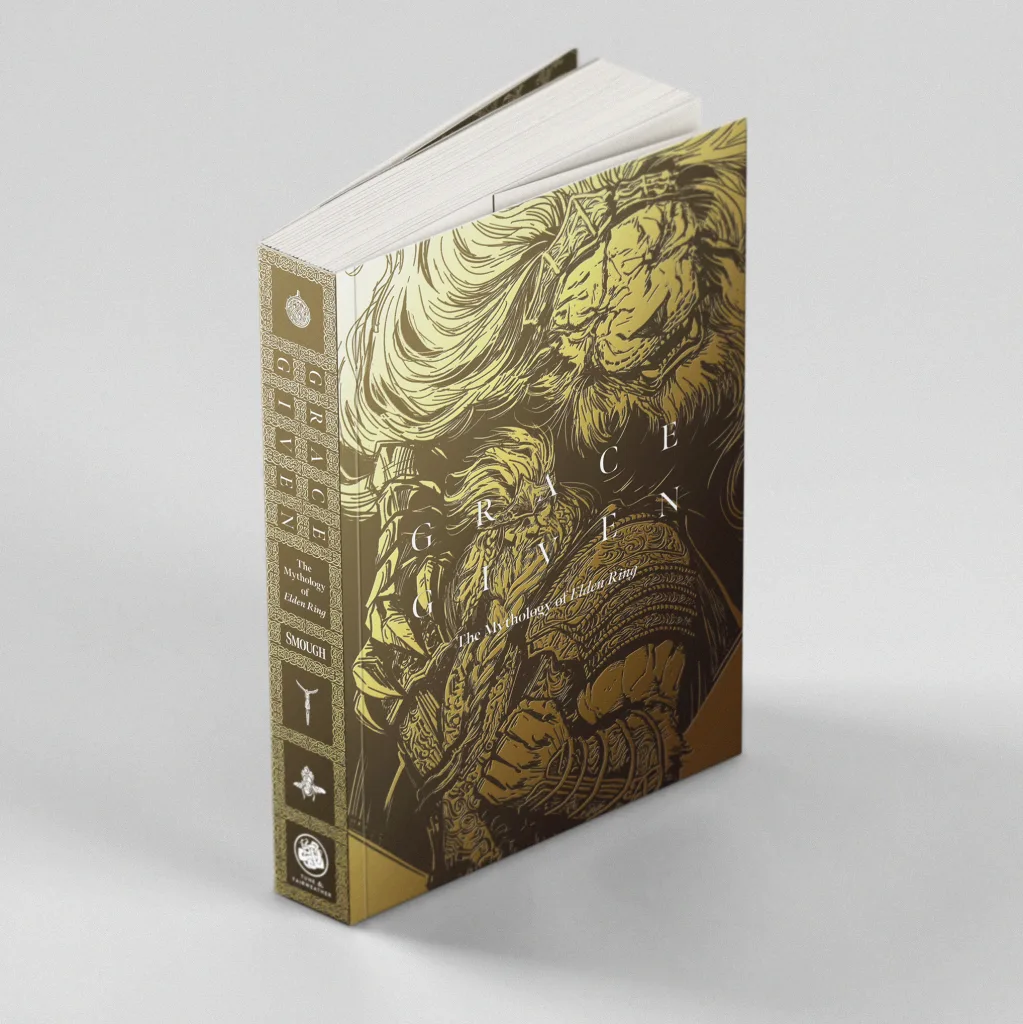
Tune & Fairweather printed 5,000 copies of the collector’s edition, which have been shipping, and Killingsworth says they’re nearly sold out. While the collector’s edition is limited to just one run, a $144 deluxe edition with downgraded (but still impressive) specs is on its way in the coming months, as is a $42 softcover.
Like the games that Killingsworth documents, the high-tier pricing can polarize—and he has weathered his share of commenters online who aren’t thrilled about it.
“It’s just such an expensive enterprise. Never mind the price of the materials and the production costs, which themselves are eye-watering,” he says. “I just made a conscious decision that even if there was some blowback, I felt like I had built up enough trust with our audience where I could say, ‘Trust me. I will make this worth your while.’”
And hey, when it comes to that price tag, if there’s one group that’s used to really grinding for what they want, it’s a Souls fan.
What's Your Reaction?
 Like
0
Like
0
 Dislike
0
Dislike
0
 Love
0
Love
0
 Funny
0
Funny
0
 Angry
0
Angry
0
 Sad
0
Sad
0
 Wow
0
Wow
0





































